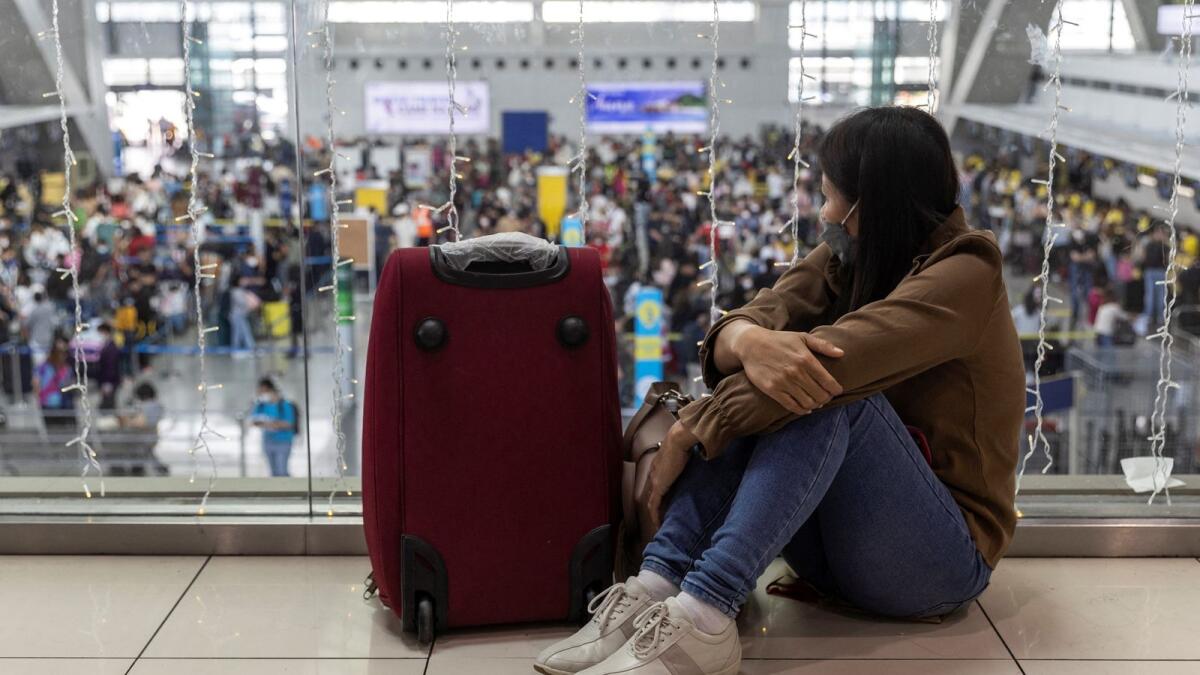A Filipino traveller attempting to fly to the UAE was recently stopped from boarding her flight after presenting a fake overseas employment certificate (OEC) to immigration authorities. The Bureau of Immigration in the Philippines issued a warning against purchasing travel documents from social media platforms and messaging apps. The 49-year-old woman, known as ‘Valerie’, claimed to have previously worked in the UAE and was “being redeployed”. She was about to board an Emirates flight from Clark International Airport when she was stopped at the immigration counter for the fake OEC. An OEC certifies the regularity of Filipino expats’ employment and is required for returning to the UAE or any other country they are working in. Valerie admitted to buying the fake OEC for Php7,200 (Dh450) via WhatsApp, prompting the Bureau of Immigration commissioner to caution aspiring overseas Filipino workers against purchasing permits online.
Norman Tansingco emphasized the dangers of buying fake documents for the illegal departure of workers and urged individuals to go through legal means when departing for work. Immigration officers have the ability to verify the authenticity of OECs through a data-sharing agreement with the Department of Migrant Workers. In a separate incident, a woman also attempted to travel and work in Kuwait using a fake OEC obtained from a Facebook page for Php500. The incident highlights the prevalence of scams involving fraudulent travel documents in the region.
The case of Valerie underscores the importance of verifying the authenticity of travel documents and following legal procedures when working overseas. The Bureau of Immigration’s warning serves as a reminder to individuals seeking employment abroad to be cautious and vigilant in ensuring the legitimacy of their paperwork. By avoiding online purchases of permits and going through official channels, aspiring overseas Filipino workers can protect themselves from falling victim to scams. The collaboration between immigration authorities and relevant departments in verifying the validity of OECs enhances the security measures in place to prevent fraud and illegal activities related to overseas employment.
The incident involving Valerie serves as a cautionary tale for individuals seeking opportunities abroad and highlights the risks associated with purchasing fake travel documents. By raising awareness about the potential consequences of using fraudulent permits, the Bureau of Immigration aims to protect Filipino workers from exploitation and ensure their safety while working overseas. The collaboration between immigration officers and other government agencies in verifying OECs demonstrates a commitment to upholding the integrity of the immigration process and preventing unauthorized departures. Through education and enforcement of regulations, authorities seek to deter individuals from engaging in illegal activities related to overseas employment.
Overall, the case of Valerie sheds light on the prevalence of scams involving fake travel documents and the importance of verifying the authenticity of permits before traveling abroad. By heeding the warnings issued by immigration authorities and following legal procedures, individuals can protect themselves from falling victim to fraudulent schemes. The incident serves as a reminder of the risks involved in seeking employment overseas and underscores the need for caution and diligence in navigating the complexities of international labor migration. Aspiring overseas Filipino workers are encouraged to stay informed and seek guidance from official sources to ensure a smooth and lawful transition to working abroad.










